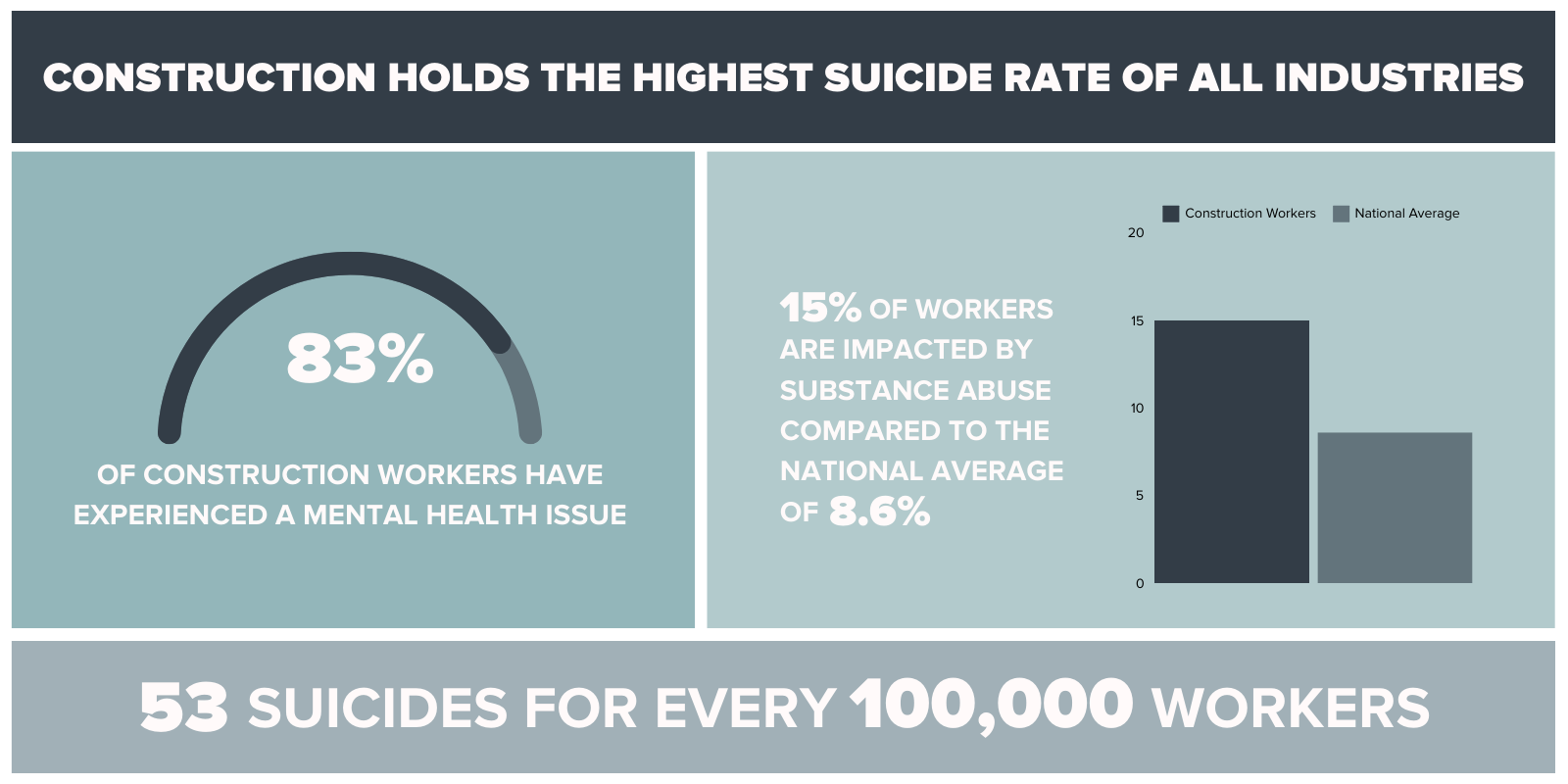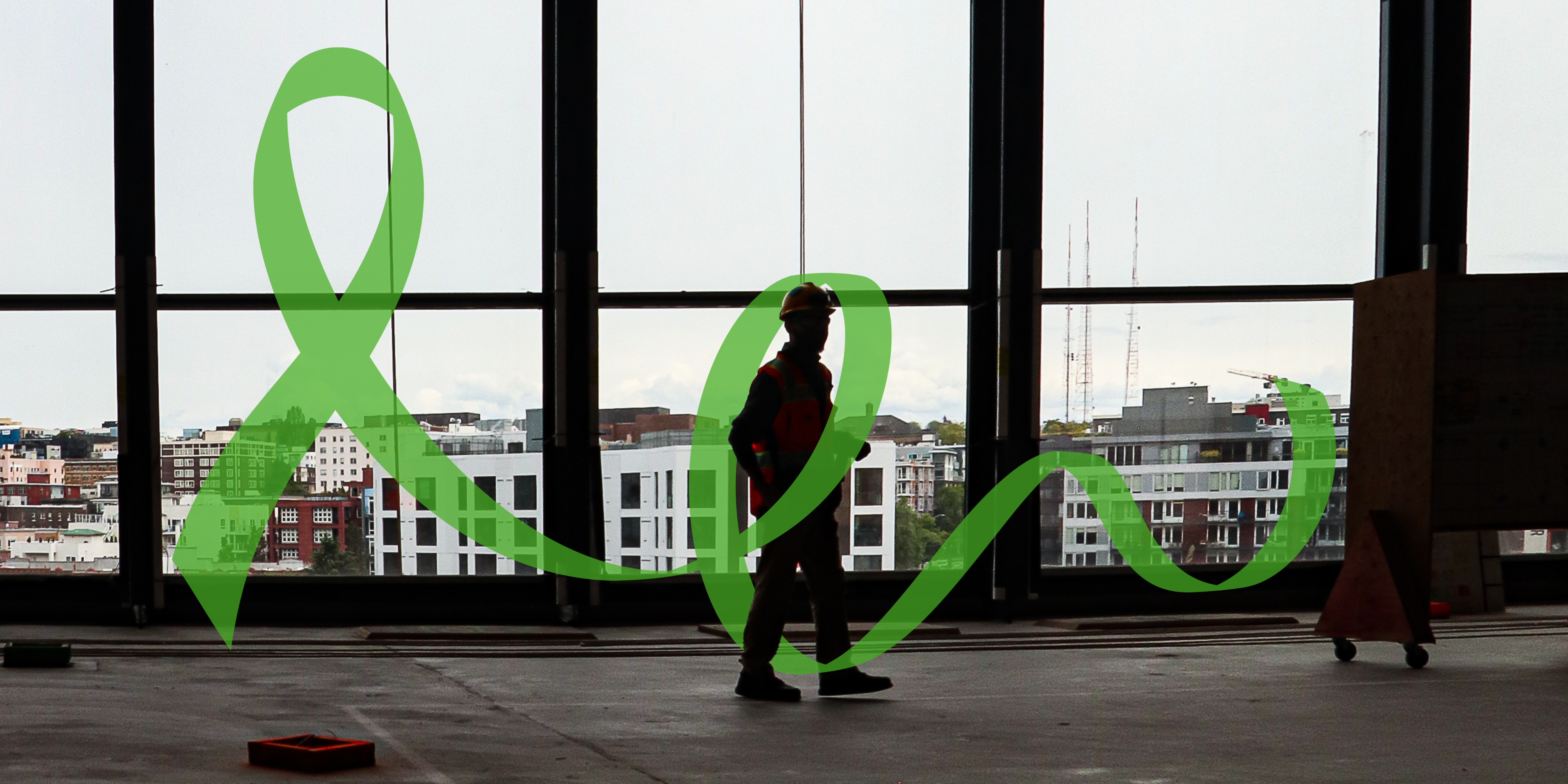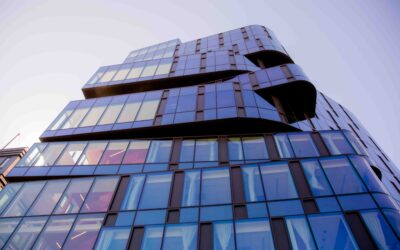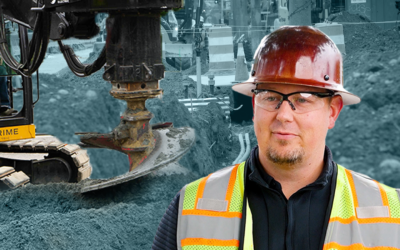In the bustling realm of construction, where each foundation poured and every beam raised contributes to the evolving skyline of tomorrow, mental health often takes a backseat. At PRIME, however, we understand and recognize that ensuring the well-being of our workforce goes hand in hand with creating a culture of excellence.
Construction is an industry with unique challenges, including long hours, physically demanding labor, and often an uncertain work environment. These factors contribute to high rates of mental health issues within the industry. A few years back, PRIME realized that despite hosting numerous wellness events throughout the year, we needed to offer more that centered on supporting the mental health of our employees.

Tackling Mental Health Stigma in the Construction Industry
There’s a stigma associated with mental health, particularly prevalent in the construction industry, where 89% of workers are men. Men often underreport mental health issues or refrain from seeking help until it’s too late. The primary reasons for this reluctance include shame and fear of judgment from peers. The fast-paced environment combined with physically demanding tasks contribute to heightened levels of stress and anxiety. Workers often keep their stresses to themselves, fearing that sharing feelings may be perceived as a weakness, further perpetuating the stigma surrounding mental illness and promoting secrecy and isolation. Chronic injury or pain resulting from manual labor exacerbates these challenges, while coping methods such as alcohol or substance use may provide temporary relief but ultimately worsen mental health issues in the long term. Work schedules such as night shifts or weekend work can further isolate workers from their support networks of friends and family.
Addressing Mental Health Warning Signs in the Workplace
Recognizing warning signs like increased absenteeism, decreased productivity, isolation from peers, and substance abuse is crucial. Fostering open dialogue and discussing both work-related and personal matters can help destigmatize mental health issues. Initiating conversations, raising concerns with supervisors and ensuring follow-up action and support are essential steps in addressing these challenges.
PRIME provides support through our initiatives, Employee Assistance Program (EAP), wellness activities, and our dedicated Mental Health Month offers information and resources to employees in need, ensuring they don’t feel alone or without options.
Factors Affecting Mental Well-being & Strategies for Addressing Them



Spending time in nature offers numerous mental health benefits, providing relief from anxiety, stress, and depression. Contact with nature boosts energy levels, enhances creativity, and improves sleep quality. Simple activities like taking walks, exercising outdoors, or engaging with the natural environment can have profound effects on mental well-being.
Nutrition plays a crucial role in mental health. Emotional eating, driven by feelings rather than hunger, can lead to overeating and weight gain. Consuming healthy foods like fruits, vegetables, whole grains, and lean proteins can lower the risk of depression and stabilize mood.
Financial stress is a significant contributor to mental health issues, causing anxiety, relationship strain, and reduced job performance. Practicing budgeting, effective communication, seeking professional help and understanding that wealth doesn’t define self-worth can help manage and alleviate financial stress.
PRIME’s Approach to Supporting Mental Health
During our inaugural Mental Health Month in 2022, PRIME created mental health Toolbox Talks (TBT) which were sent to both our field and office teams. Each week we explored the connection between mental health, nature, nutrition, suicide, and workplace safety. As the month concluded, we circulated a TBT containing information on our EAP. An employee, who had been with PRIME for six months and had a family history of mental health issues, reached out expressing gratitude for learning about the EAP resource. They had already arranged sessions to address their feelings of stress and anxiety. This story emphasizes the importance of our efforts in promoting mental health awareness and support among our team.

Pictured here is a toolbox talk being shared with a project team during Construction Safety Week, which included content on mental health awareness.
Creating a Culture of Mental Resilience
Prioritizing mental health in the construction industry is imperative for fostering a resilient workforce. At PRIME, we acknowledge the challenges faced by construction workers and are committed to creating a culture that values mental well-being as much as physical safety. The statistics speak volumes, addressing mental health warning signs, fostering open dialogue, and providing support are crucial steps in tackling this issue. PRIME’s initiatives, including the Employee Assistance Program (EAP) and our Tool Box Talks, offer valuable resources and support to employees in need. PRIME remains committed to promoting mental health awareness and support within our organization.




